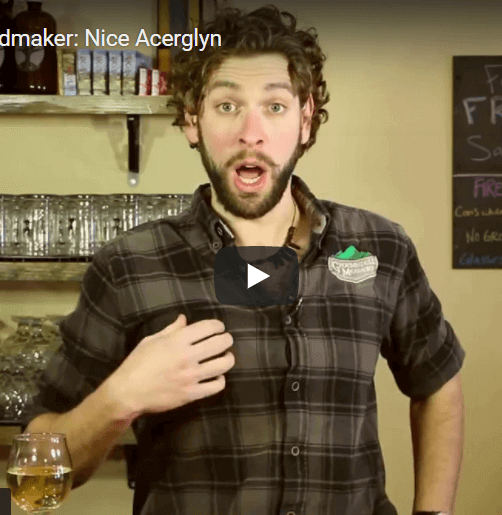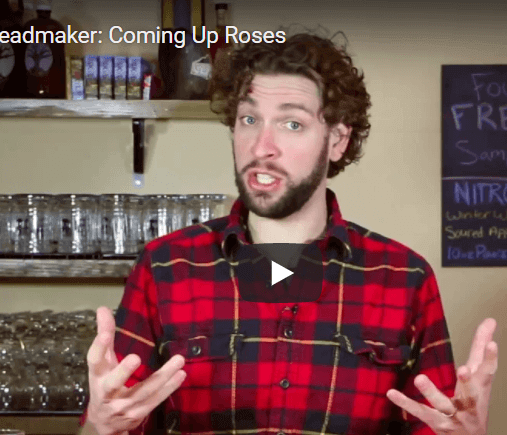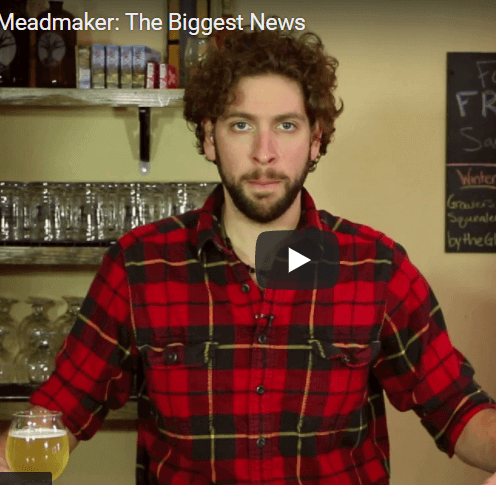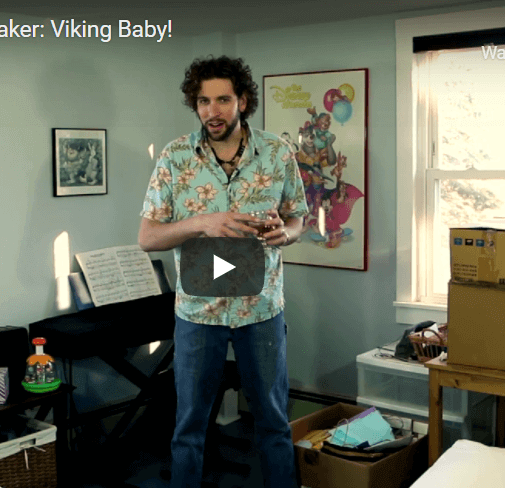In which Ricky the Meadmaker answers questions about fermentation odors, bottle bombs, scaling up recipes, Ask the Boss, and more!
On last week's Ask the Meadmaker, I made a very, very, very important announcement. On this week's Ask the Meadmaker I promise to say absolutely nothing important at all.
Welcome to Ask the Meadmaker, where I, Ricky the Meadmaker, answer your questions about mead making, mead drinking, mead brewing, and really any question you're willing to send to me.
We're going to start off with a reader this week, one that was so well written that I thought you'd want to hear it verbatim. The problem is I tried to keep these episodes to about six minutes, so I'm gonna have to abbreviate it. Waspacman says, "I started my first ever batch of mead," they give me a date. "I unfortunately am a bit too curious and opened up the cover of my fermenter, stuck my nose in there, and took a big whiff. Let's just say I went," It's onomatopoetic, but "'Whoo!' loud enough for my neighbors in the apartment building to ask if everything was okay because it packed a huge punch." So, on, so on, so on, sour smells, so on, so on, concerns about acetyl aldehyde. Acetaldehyde. "Can I bring the batch in and ask your nose to give it a gander to see if I should just chuck it? I know that your ethos is not to chuck it and see where it goes. But I'm not sure if this is going to end up being a complete palate buster or a potentially passable first attempt. TLDR, would you do me the honor of smelling my batch?" They don't equip the Jewish people with these just for show. I'd be happy to smell your batch.
Our next question comes from someone who has a number in the middle of his name so I don't know how to pronounce it. But the question is this, "Why did you only shoot one episode of Ask the Boss? I have a theory about this. I have three theories, in fact. Number one is that I'm a mere minion under Kelly's thumb, and must do what she says. Number two, I don't think she loves being on camera. But my real theory, and this is the one I put out a lot, is we get a lot of questions about nutrient loading, and very, very few about excise tax and postage.
Our next question is a very good one from someone with a very weird name. PickmanGodOlamar wants to know about scaling up batches of mead. If you have a one-gallon batch, can you just triple everything: your honey, your water, your yeast, your nutrient, to make a three-gallon batch? The answer is, generally speaking, yes. It's not like making rice or barley where you have to worry about your water ratio as you scale up and possibly lose. Blah, blah, blah, blah, blah. There's one exception. At some point, you can have a batch of mead or beer or wine so big that the hydrostatic pressure of your must, or your wort, or your beer, or your wine can crush the yeast. It's called autolysis. And it's awful. It makes these weird off-flavors like rubber bands and rubber cement. The good news is, it usually doesn't happen until you're making about 12,000 gallons. So, my guess is you're okay.
Our next question comes from Thomas, who has aged a batch of mead for an entire year, and is very concerned about getting bottle bombs if he bottles it up and doesn't refrigerate it. The good news is, unless you add more sugar, there is almost no way that a one-year-old batch would start refermenting in the bottle and cause issues.
Our last question this week comes from Tony, who asked this question months and months ago, but now is the right time to answer it. He's asking about acerglyns, meads made with maple. He wants to know if I've ever made an acerglyn, or an acerglyn cyser, or an acerglyn bochet, or any of these weird combinations of different types of meads and what my ratios were. First thing I'm going to do is I'm going to send you to my article about blending and figuring out ratios of different ingredients. It's linked in the doobly doo below. But the big reason this is the perfect time of year for this is Fire on Snow came out two weeks ago, which is technically an acerglyn. It's a maple mead. My ratio of honey to maple is about nine to one or ten to one. It has very little maple. And the reason is, if you have too much maple in something like that, all that sugar gets fermented out. Probably never thought to yourself, huh, what does maple syrup without any sugar in it taste like? The answer is, for those of you at home who haven't done this, the inside of a tree. Because that's what maple is. So, if you have too much maple and you ferment it all the way down to zero residual sugar. Well, it's a very expensive way to replicate oak aging.
So, that's our last question this week. I just have to send it over to Ricky with our Word of the Week, Ricky? Thank you, Ricky. Congratulations on your news, by the way. This week's word is acerglyn. I think Ricky just referenced one a moment ago. An acerglyn is a mead made with maple syrup. And the question is, how old is that term? From the 1890's or so we have the term acer, which means, we think, a maple alcoholic beverage, possibly made with honey, possibly not. What's weird about the word acerglyn is it is a combination of Latin, acer, and glyn, which is Welsh, which isn't a normal combination of words. So, acerglyn means a maple mead, whether that's what it always meant is still up for dispute. Acerglyn, our Word of the Week and the end of our show.
Keep sending your questions and I'll get to them as soon as possible. Cheers.




